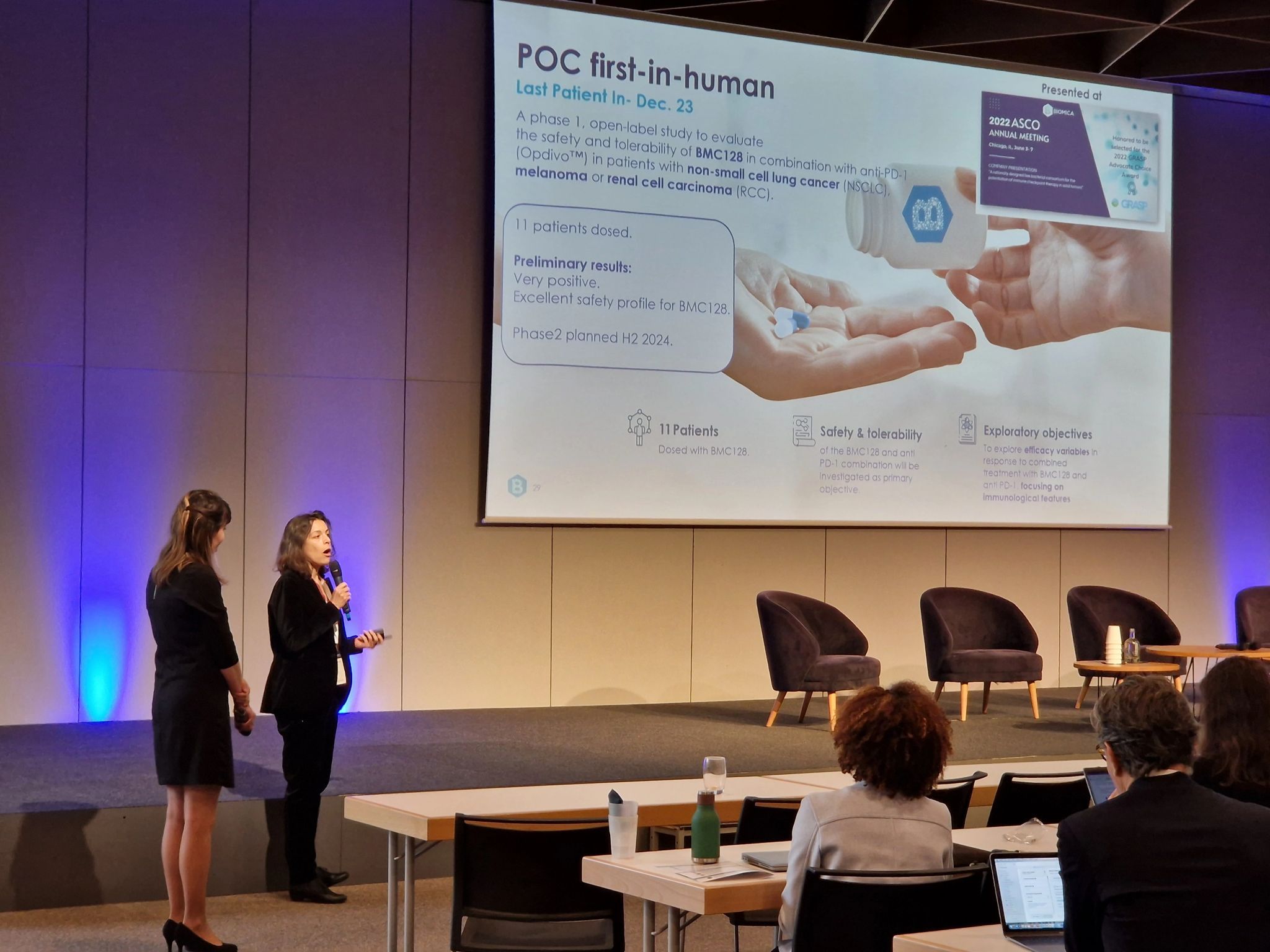One in two people will develop cancer in their lifetime. Given this startling fact, developing novel treatments to improve cancer survivability is vital. Recent evidence has indicated a role for the gut microbiome in modulating cancer therapy response. For example, FMT trials in humans have specifically shown transferring faecal microbiome material from anti-pd-1 responders into non-responders can improve checkpoint inhibitor (ICI) therapy response and efficacy.
Biomica, a clinical phase, Israel-based biopharmaceutical company, and partner of Biose Industrie, are trail-blazing microbiome therapeutic development for improving immuno-oncological treatment. A subsidiary of Evogene, Biomica leverage a computational biology approach to identify and develop rationally designed live biotherapeutic products with a focus on treating gastrointestinal and immuno-oncological indications. Their lead candidate BMC128, is a phase 2, four-strain LBP intended to improve response rates for ICI in solid tumours.
Biose Industrie were pleased to present with Biomica for a presentation on our joint work to get BMC128 through the clinic, at the recent Pharmabiotics Conference & Partnering 2024 event in Lille.

Shiri Meshner, Vice President of R&D, of Biomica presented the first half of the talk. Meshner described how Biomica uses a proprietary computational platform, PRISM, to design consortia-based live biotherapeutics with the fewest number of strains for maximal function. Biomica’s immuno-oncology drug candidate, BMC128, is a combination of 4 specific functional bacteria which are elevated in human responders to ICI, Meshner explained.
In pre-clinical models for breast cancer and melanoma BMC128 administration prior to and in combination with anti-pd-1 significantly improved anti-tumour activity. Meshner cited an overall reduction in systemic immune inhibition, along with an induction of systemic and intra-tumour immune penetration and activation as key to the drug’s mechanism of action.
Meshner rounded off the first half of the presentation by discussing Biomica’s in-human trial. Biomica concluded its phase 1 open-label study in 2022, which examined the safety and tolerability of BMC128 in patients with non-small cell cancer, melanoma, or renal cell carcinoma. The phase 1 study indicated an excellent safety profile and positive preliminary results.
Biose’s very own Claire Derlot, Chief Business Officer, then took to the stage. Derlot described the close working relationship between Biomica and Biose Industrie, with Biose assisting Biomica at every step of their manufacturing journey. Biose first engaged with Biomica in 2020 and have since scaled BMC128 from small preclinical batches all the way up to GMP clinical manufacture, in reactors of up to 3500 Litres, for Biomica’s phase 1 trial.
One challenge in manufacturing BMC128 for the phase 1, Claire described, was ensuring ileal release of bacteria. To overcome this challenge, Biose performed a tailored formulation screening using an in vitro gut model system and BMC128. Biose then used the results of the experiment to design a delayed-release banded capsule which delivers the bacteria in the late intestine for optimal efficacy in humans.
Finalising the presentation Derlot described how Biose will work with Biomica to navigate upcoming challenges for BMC128 including: process optimisation for drug substance and drug product, DS and DP GMP manufacturing, and regulatory support for the CTD filing to the FDA (submission in H2 2024).
Biose look forward to continuing our journey with Biomica and are excited for the outcomes of their upcoming phase 2 clinical trial.



